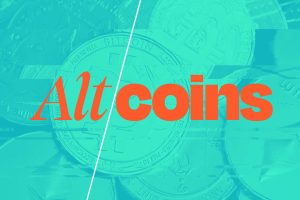New opportunities are changing the way we see the world, conduct business, and invest: cryptocurrency. Blockchain. Bitcoin Mining. NFTs.
The latest opportunity?
Buying virtual land.
Yes, you heard that correctly: buying land in the metaverse.
Did you know:
What’s more, Grayscale, a crypto asset manager, recently released a report that estimates the digital world may grow into a $1 trillion business in the near future.
In this article, we’ll break down everything you need to know about buying land in the Metaverse, including the advantages and disadvantages of investing in this new virtual land rush.
Let’s get started!
What is Virtual Land?
Virtual land is land bought, sold or owned in what’s called the metaverse.
The metaverse, first mentioned in Neal Stephenson’s 1992 science fiction novel, Snow Crash, is a virtual reality universe that exists on the internet.
In it, the “metaverse” is a digital world that people can visit and interact with others online.
Unlike other virtual reality universes, the metaverse has a strong social component. This is because it’s an MMO (massively multiplayer online) game that allows users to connect with others and play together in real-time.
The metaverse is also an open world, which means that users can explore it at will.
You may have encountered the metaverse before without realizing it:
How Real Estate in the Metaverse Works
In the Metaverse, users can purchase virtual land, which is a new type of digital real estate.
The possibilities for what you can do with your virtual land are endless but will generally fall into one of two categories:
Unlike a traditional online game where players buy gear or additional character slots, in a metaverse each user purchases their very own parcel of real estate that they can build on and use for whatever purpose they see fit.
Just like physical real estate, the goal of investing in virtual real estate is to build a large portfolio that generates long-term passive income.physical real estate, the goal of investing in virtual real estate is to build a large portfolio that generates long-term passive income.
The price to purchase virtual land varies greatly from one metaverse server to another depending on:
Some virtual reality worlds have a fixed price to buy digital property, while others allow users to bid or auction for parcels of land.
Highlights of How Virtual Real Estate Works
Buying and Selling Property
In most cases, users can buy virtual land from other players at any time they wish.
In some metaverses though, the owner of the property cannot transfer ownership to a third party unless it’s through a game mechanic.
This prevents players from simply selling their virtual land and walking away with the profits.
Developing Your Virtual Land
One of the best parts about owning virtual land is that you can build on it (virtually, of course).
This way, gamers create their own experiences and make each metaverse server unique from one another.
For example, some users may choose to turn their virtual property into a nightclub or a restaurant, while others may build an amusement park.
In the metaverse, the possibilities are endless.
Taxation
Just like in the real world, virtual landowners must pay property taxes on their parcels.
The tax amount varies depending on the metaverse server, but it’s generally a small percentage of the total value of the property.
Why Invest in Virtual Land or Real Estate?
Now that we’ve discussed how virtual real estate works, let’s explore some of the explicit advantages of investing in virtual land over other types of competing investments like stocks or physical real estate.
Advantages of Buying Land in the Metaverse
Disadvantages of Buying Land in the Metaverse
What to Consider When Buying Land in the Metaverse
When it comes to buying virtual land, there are several things to consider before making a purchase.
Here are some factors you’ll want to take into account:
The Server
Make sure the metaverse server you choose has low transaction fees and is easy to use.
The Currency
The metaverse server you choose should accept the currency you want to use to buy virtual land.
The Safety of the Server
Make sure the metaverse server you choose is safe and secure, using blockchain technology or other security measures.
Ease of Use
Make sure the buying platform is easy to use and navigate.
How to Buy Land in the Metaverse in 5 Steps
Let’s take a deep dive at how you can buy land in the metaverse.
Step 1: Determine your virtual land goals and strategy
Just like with any investment, before you begin it’s critical to determine your overall strategy. For example:
Once you have your goals and strategy, you can move to step 2.
Step 2: Choose a metaverse server and virtual land to purchase
There’s no shortage of metaverses on the market, but not all of them are created equal.
In order to maximize your chances for success as an investor, choose one with low transaction fees that allow players to easily buy and sell virtual land.
Step 3: Create a digital wallet for your metaverse account and purchase your first parcel of virtual real estate.
If you don’t already have one, create an Ethereum-compatible wallet to store the currency that you’ll use in the metaverse (Ether).
Then, fund it using either cash or cryptocurrency depending on what the metaverse server accepts.
Step 4: Choose a buying platform
Here are some popular metaverses that accept virtual land investments:
Decentraland
Decentraland is one of the most popular virtual reality metaverses where users can buy land using MANA tokens.
Metaverse Group
Metaverse Group is a virtual economy where players can buy and sell land using the blockchain.
Etheria (World of Ether)
Etheria is a decentralized world where players can buy and sell virtual real estate using the Ethereum blockchain.
Future Fables
Future Fables is an augmented reality metaverse that lets users purchase virtual real estate in the form of islands, houses and castles using cryptocurrency or fiat currency.
Inworldz & Sansar.com
These sites are also both virtual worlds that accept investments of cryptocurrency or fiat currency in the form of USD, EUR and INR.
Step 5: Buy your Virtual Land
Just like any real estate transaction, you’ll submit an offer to a seller, and once you’ve come to an agreement, you’ll close the sale and take possession.
Once you’ve acquired your parcel of virtual real estate, you can enact your strategy from step 1.
The Bottom Line: Virtual Land Investing
Investing in virtual property comes with many benefits that aren’t offered by other types of digital or physical assets but might not be the right investment for those risk-averse to digital assets like cryptocurrency or NFTs.
If you determine that virtual land investing is right for you, follow our 5-step blueprint for wise investing.
If it isn’t, keep in mind there are other and less risky opportunities with high ROI, like physical real estate and stocks.
Whichever investing method you choose — whether it’s a new opportunity like virtual land or a proven method like physical real estate and stocks — education is key.














